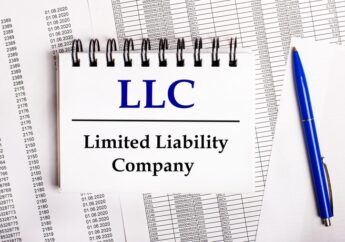Alex Kleyner’s National Debt Relief: Addressing Bad Money Habits In All Generations
by Mony Shah Finance Published on: 03 February 2024 Last Updated on: 27 March 2024

In an era where financial literacy is crucial, Alex Kleyner’s National Debt Relief delves deep into the widespread prevalence of poor financial habits, transcending generational boundaries. National Debt Relief, a leading debt settlement company that also guides debt management, offers a fresh perspective on financial wellness. Their recent national survey unveils alarming statistics about monetary decisions affecting various age groups, underscoring an urgent need for change. This article illuminates these findings and offers insights into transforming detrimental money patterns into pathways for financial security.
Overview Of National Survey Findings

National Debt Relief’s comprehensive survey, encompassing a diverse generational cohort, reveals a startling reality: over 60% of individuals confess to poor financial decisions, while 42% are entangled in financial struggles. These figures vividly depict the pervasive nature of bad money habits across society. Interestingly, the survey brings to light a generational nuance—millennials, in particular, demonstrate heightened self-awareness regarding their financial missteps.
Unlike their predecessors, this group actively seeks resources and strategies to facilitate their economic practices. This shift towards proactive financial management is a silver lining, indicating a growing consciousness about the importance of sound monetary habits. The survey’s insights serve as a wake-up call, highlighting the urgency of addressing these detrimental patterns across all age groups.
Interview Insights
In insightful interviews, Natalia Brown, Chief Client Operations Officer at National Debt Relief, and Dasha Kennedy, Founder of The Broke Black Girl and National Debt Relief’s Financial Wellness Board member, shed light on the survey’s implications. They emphasize that while bad money habits are widespread, they are not insurmountable. Brown and Kennedy highlight the necessity of understanding personal financial behavior as a stepping stone toward change.
They note millennials’ increasing efforts to seek knowledge and tools for better financial management, setting a precedent for other generations. This proactive approach is key to breaking the debt and financial instability cycle. The significance of readily available financial education is emphasized, as is the function of organizations such as National Debt Relief in cultivating an environment that promotes judicious financial choices, which are vital for sustained economic prosperity.
Strategies To Break Free From Detrimental Money Patterns
The path to financial liberation lies in a multifaceted approach, as Natalia Brown and Dasha Kennedy detailed. Key to this journey is gaining a thorough understanding of one’s financial status, an often overlooked but vital step. Realistic personal budgeting techniques are the cornerstone of this process, enabling individuals to track and manage their expenses effectively.
Reducing non-essential expenditures is another critical strategy, as it frees up resources that can be redirected toward debt reduction or savings. Furthermore, seeking professional help with debt settlement solutions can be a game-changer, providing tailored solutions and support. These strategies are not just theoretical ideals but practical steps that can significantly improve financial health, empowering individuals to break free from the shackles of poor money habits and embark on a path to financial stability and independence.
Strategies Of Money Management

Individuals must be aware of the debt traps that have opened their mouths to gobble the future. Thousands of young personnel have this tendency. Therefore, you have to be patient enough to ensure you are aware of the potential threats that act like quicksand in the dangerous terrain of debt. However, here we discuss some core money management strategies you must follow with the utmost discipline.
1. Create A Budget
First, you must create a budget, which is the first step in money management. It is quite a simple strategy, and it is nothing new. First, you create an estimation of the finances you need to spend every month. This is based completely on income, wants, and lifestyle. If you have such an estimate, it will assist you in gaining an upper hand over your money.
2. Start With Your Investment
First, we advise you to start saving your money right from the beginning. Start with your saving efforts right from the first paycheck. Yes, investments are subject to market risks. But if you start investing with smaller money, right from the beginning. Different banks have easy investment plans. This plan helps you with little gains and inspires you to gain knowledge on investments for a longer time. The advantage is that you could choose between the debt funds and then switch or change between the savings funds.
3. Avoid Debt
Why do you take loans to achieve your goals, you may encounter not one but many problems. First, there is the high rate of interest. They eat up all your savings. If you take multiple loans, it will drastically affect your credit score. So, you need to make an effort to restrain your expenditure as early as possible. If you depend too much on credit cards, you might face some problems.
Role Of National Debt Relief In Financial Education

National Debt Relief, guided by Alex Kleyner’s and his team’s vision, plays a pivotal role in fostering financial literacy and responsible money management. Beyond the simple resolution of debts, their objective is to foster a sense of financial prudence and empowerment within the community. National Debt Relief provides invaluable resources and support, helping individuals understand and navigate the complexities of personal finance. This commitment to education and behavioral change is integral to their ethos, reflecting a deep understanding of the transformative power of financial knowledge in achieving long-term economic security and well-being.
Conclusion
In conclusion, the insights and strategies presented by National Debt Relief, under the guidance of Alex Kleyner, offer a beacon of hope for those struggling with financial challenges. Their comprehensive approach to breaking bad money habits is about overcoming immediate debt and fostering a sustainable, financially literate society.
This initiative underscores the critical need for financial education across generations, encouraging individuals to take control of their economic futures. By embracing these principles and resources, we can collectively work towards a future where financial wellness is not a distant dream but an achievable reality for all.
Want to Learn More?
Transform your financial narrative with National Debt Relief. Embrace a future of empowerment and stability by exploring our debt relief program benefits and educational resources. Visit our website or contact us today to start your journey toward financial freedom and join a community committed to breaking the cycle of debt.
Additional:







































































































